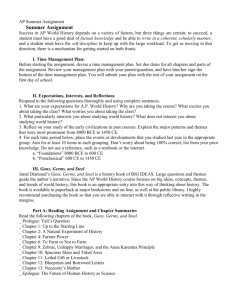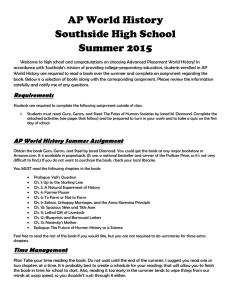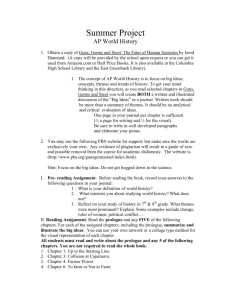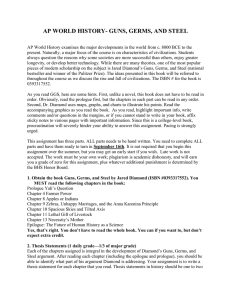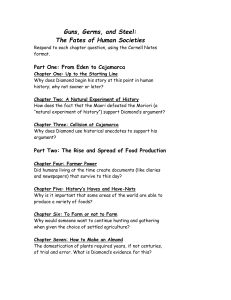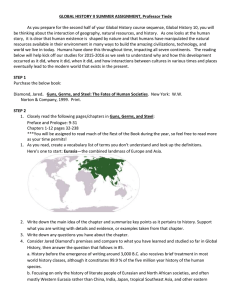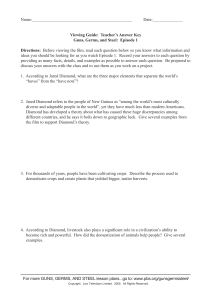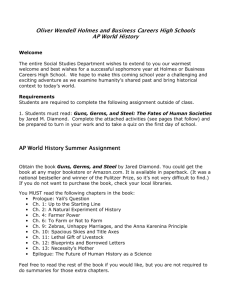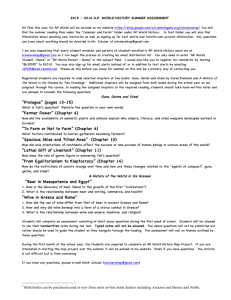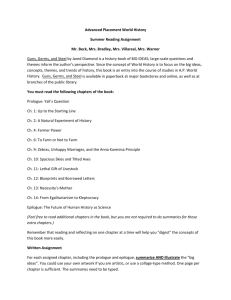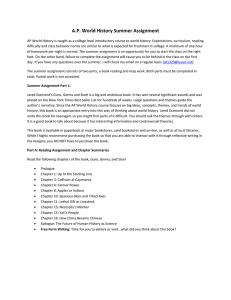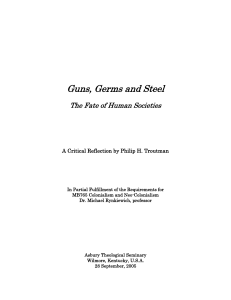AP Summer Assignment - Central Unified School District
advertisement
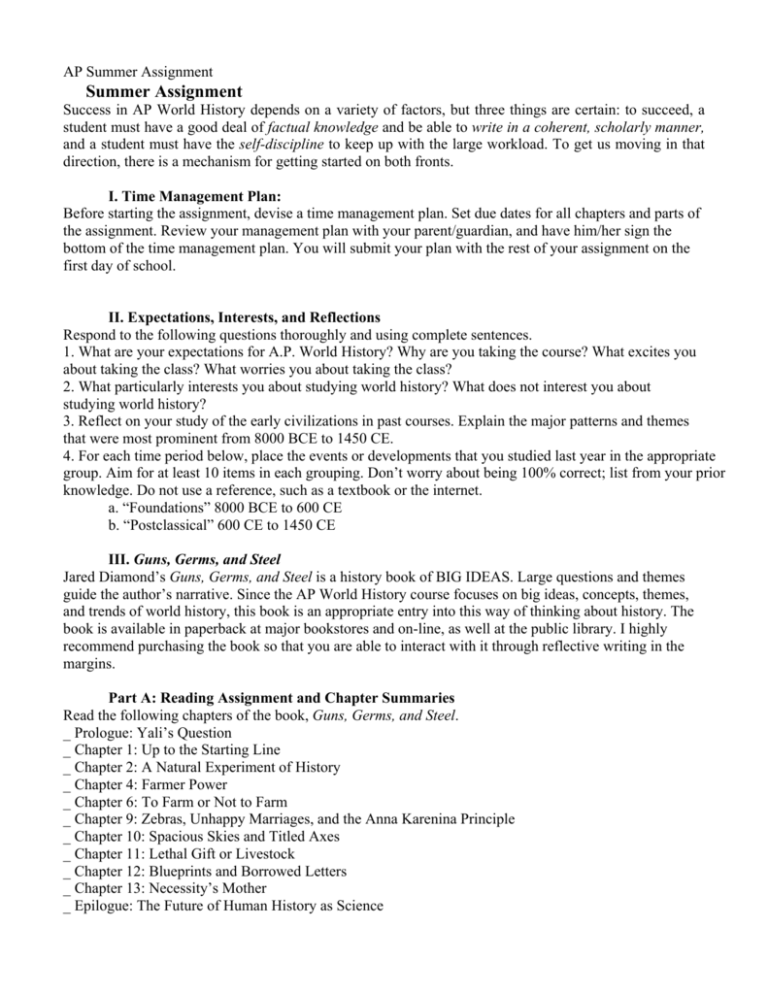
AP Summer Assignment Summer Assignment Success in AP World History depends on a variety of factors, but three things are certain: to succeed, a student must have a good deal of factual knowledge and be able to write in a coherent, scholarly manner, and a student must have the self-discipline to keep up with the large workload. To get us moving in that direction, there is a mechanism for getting started on both fronts. I. Time Management Plan: Before starting the assignment, devise a time management plan. Set due dates for all chapters and parts of the assignment. Review your management plan with your parent/guardian, and have him/her sign the bottom of the time management plan. You will submit your plan with the rest of your assignment on the first day of school. II. Expectations, Interests, and Reflections Respond to the following questions thoroughly and using complete sentences. 1. What are your expectations for A.P. World History? Why are you taking the course? What excites you about taking the class? What worries you about taking the class? 2. What particularly interests you about studying world history? What does not interest you about studying world history? 3. Reflect on your study of the early civilizations in past courses. Explain the major patterns and themes that were most prominent from 8000 BCE to 1450 CE. 4. For each time period below, place the events or developments that you studied last year in the appropriate group. Aim for at least 10 items in each grouping. Don’t worry about being 100% correct; list from your prior knowledge. Do not use a reference, such as a textbook or the internet. a. “Foundations” 8000 BCE to 600 CE b. “Postclassical” 600 CE to 1450 CE III. Guns, Germs, and Steel Jared Diamond’s Guns, Germs, and Steel is a history book of BIG IDEAS. Large questions and themes guide the author’s narrative. Since the AP World History course focuses on big ideas, concepts, themes, and trends of world history, this book is an appropriate entry into this way of thinking about history. The book is available in paperback at major bookstores and on-line, as well at the public library. I highly recommend purchasing the book so that you are able to interact with it through reflective writing in the margins. Part A: Reading Assignment and Chapter Summaries Read the following chapters of the book, Guns, Germs, and Steel. _ Prologue: Yali’s Question _ Chapter 1: Up to the Starting Line _ Chapter 2: A Natural Experiment of History _ Chapter 4: Farmer Power _ Chapter 6: To Farm or Not to Farm _ Chapter 9: Zebras, Unhappy Marriages, and the Anna Karenina Principle _ Chapter 10: Spacious Skies and Titled Axes _ Chapter 11: Lethal Gift or Livestock _ Chapter 12: Blueprints and Borrowed Letters _ Chapter 13: Necessity’s Mother _ Epilogue: The Future of Human History as Science As you read Guns, Germs, and Steel, summarize the “big ideas” that Diamond presents by chapter. Be sure that you use your own words in your summary. Do not excessively quote the text. Do not work together with or consult any previous or current AP World student. Any evidence of plagiarism will result in a ZERO for this assignment and potential removal from the course for academic dishonesty. One way to practice getting the main idea is to orally explain the main idea to someone after you have read the chapter. If you have made it easy for the person to understand, then you have likely successfully identified the main idea of the chapter. Part B: Post-Reading Assignment After reading the book, incorporate answers to the following questions in an essay. Your essay must have a thesis statement, which you must underline. DO NOT answer these questions in sequence, but address them together in an essay that both analyzes and evaluates Diamond’s book. Avoid just re-summarizing the book. The paper should be at least 2 full, typed, double-spaced pages in length. 1. What question is Jared Diamond trying to answer? 2. What is his thesis? 3. To what extent is Diamond successful in supporting his thesis? Are particular chapters or components of his argument stronger than others? Are any chapters or components of his argument particularly problematic? WHY? 4. To what extent do you agree with his theory? Explain. So, on the first day of school, you will turn in: • I. Written Time Management Plan • II. Responses to “Expectations, Interests, and Reflections” questions • IIIA. Chapter summaries from Guns, Germs, and Steel. • IIIB. Post-reading essays from Guns, Germs, and Steel.
